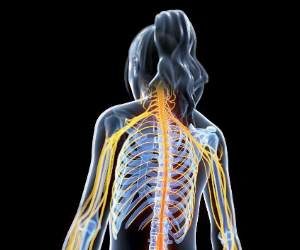A collagen dermal filler already on the market has been approved for improving the appearance of acne scars in people aged 21 years and older.
The filler, made of bovine collagen and nonabsorbable polymethylmethacrylate beads (PMMA microspheres), with a small amount of lidocaine, was approved for the correction of “moderate to severe, atrophic, distensible facial acne scars on the cheek in patients over the age of 21 years,” according to the Food and Drug Administration’s approval letter , dated Dec. 23, 2014.
The filler is marketed as Bellafill by Suneva Medical; it was formerly marketed as ArteFill. In December, the brand name was changed to Bellafill, according to the company . The filler was approved in 2006 for the correction of nasolabial folds and is the first permanent filler approved by the FDA for treating acne scars, an FDA spokesperson said.
In a clinical trial, one or two injections were needed to improve the appearance of acne scars, and the effect lasted more than 1 year, according to the FDA’s summary of approval-related information. Side effects included lumps at the injection site, redness, swelling, pain, tenderness, and itching. Contraindications included severe allergies, a positive response to the Bellafill skin test (which is required), allergies to lidocaine or cow tissue products, and bleeding disorders.
Approval was based on the multicenter U.S. study of patients aged 21 years and older with moderate to severe atrophic distensible facial acne scars on the cheek. The patients were randomized to Bellafill or sterile saline injections. Their mean age was 45 years, and about 60% were women.
At 6 months, 56 of 87 patients (64%) treated with Bellafill had at least a 2-point improvement on the 4-point Acne Scar Rating Scale for at least half of the treated scars (as assessed by a blinded evaluator), the primary endpoint. Of the 46 controls, 15 (33%) met this endpoint, and this difference was statistically significant.
Patient responses were among the endpoints evaluated in the study. At 6 months, 77% of those treated with Bellafill thought the appearance of scars had “improved” or had “much improved,” based on the Subject Global Aesthetic Improvement Scale ( a secondary endpoint), compared with 41% of controls.
Information on the approval is available on the FDA website at www.accessdata.fda.gov/scripts/cdrh/cfdocs/cfTopic/pma/pma.cfm?num=P020012S009 .
Adverse events for this product or other drugs and devices should be reported to the FDA’s MedWatch program at 800-332-1088 or www.fda.gov/Safety/MedWatch/ .




